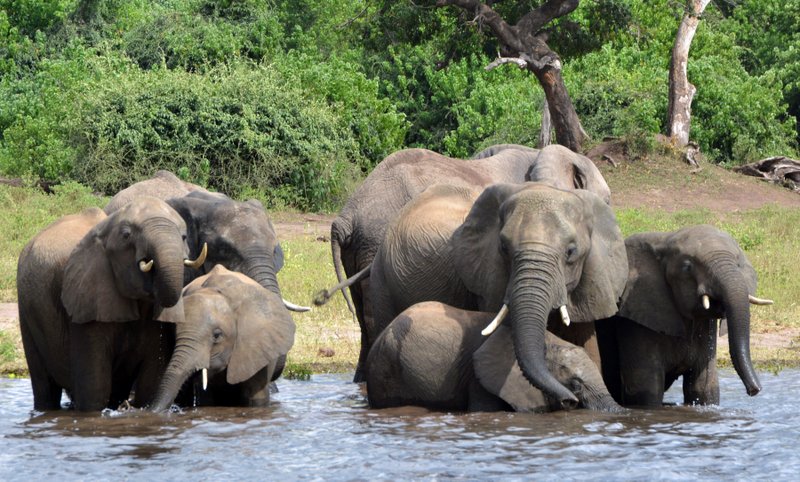JOHANNESBURG -- Botswana has lifted its ban on elephant hunting in a country with the world's highest number of the animals, a decision that has stirred anger from some wildlife-protection groups and warnings of a blow to lucrative tourism.
The southern African nation is home to an estimated 130,000 elephants. The lifting of the ban raised concerns about a possible increase in illegal poaching of elephants for their tusks to supply the ivory trade.
"Expect mass culling next," the chief executive of WildlifeDirect, Paula Kahumbu, said in a post on Twitter, warning that the effect of Botswana's decision will be felt across Africa.
Botswana has long been a refuge for elephants on a continent where tens of thousands have been killed over the years for their ivory, and the animals long have been a tourist draw. Some had warned of tourism boycotts if the ban was lifted, and even American talk-show host Ellen DeGeneres joined the protest.
"President [Mokgweeti] Masisi, for every person who wants to kill elephants, there are millions who want them protected. We're watching," she tweeted after Botswana's decision was announced.
Lifting the hunting ban comes as conflicts increase between humans -- particularly farmers -- and elephants, the government's statement said. It said hunting will resume "in an orderly and ethical manner" but does not say how it will be regulated.
"Co-existence between wild animals and communities is the only way that wildlife populations will survive," said Kitty Block, president and CEO of the Humane Society of the United States and Humane Society International. "What a shame that Botswana, previously hailed as a shining example of wildlife conservation and a safe haven for elephants, has opted to become a promoter of trophy hunting."
Political friction between Botswana's previous and current president has played a key part in the government's shifting stance on elephants in the past year.
The hunting ban was put in place under previous president, Ian Khama, an outspoken conservationist, but Masisi, the current president, began to look into it not long after taking office last year.
The decision to lift the ban comes months ahead of general elections in October.
Safari Club International, a U.S. group that lobbies to loosen restrictions on trophy hunting worldwide, cheered Botswana's decision. The group has long argued that the fees paid by big-game hunters provide essential revenue for African governments to fund conservation programs.
"It is heartening to see that the government of Botswana has taken all aspects into its careful consideration of this matter," said Paul Babaz, Safari Club International's president. "These findings clearly show that hunting bans actually hurt wildlife conservation."
Information for this article was contributed by Michael Biesecker of The Associated Press.
A Section on 05/24/2019
